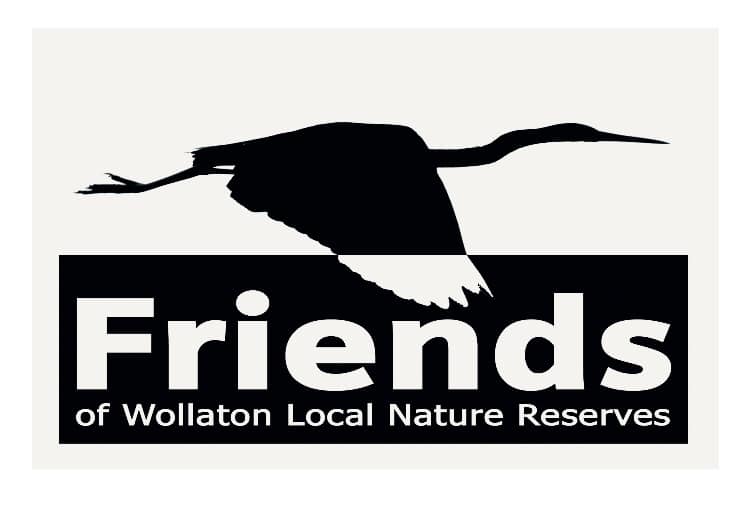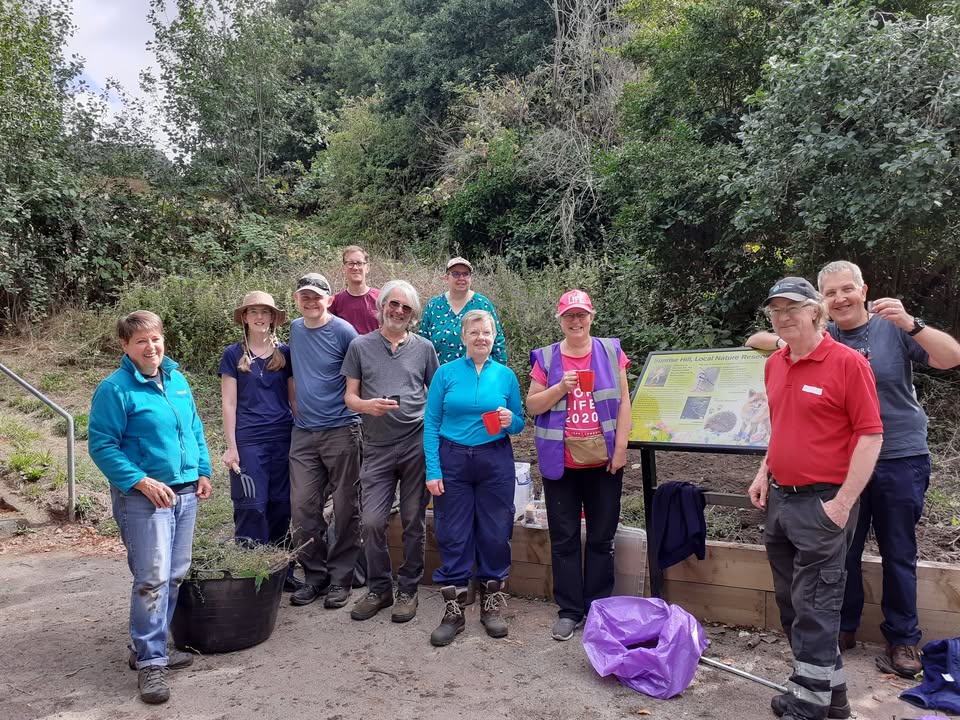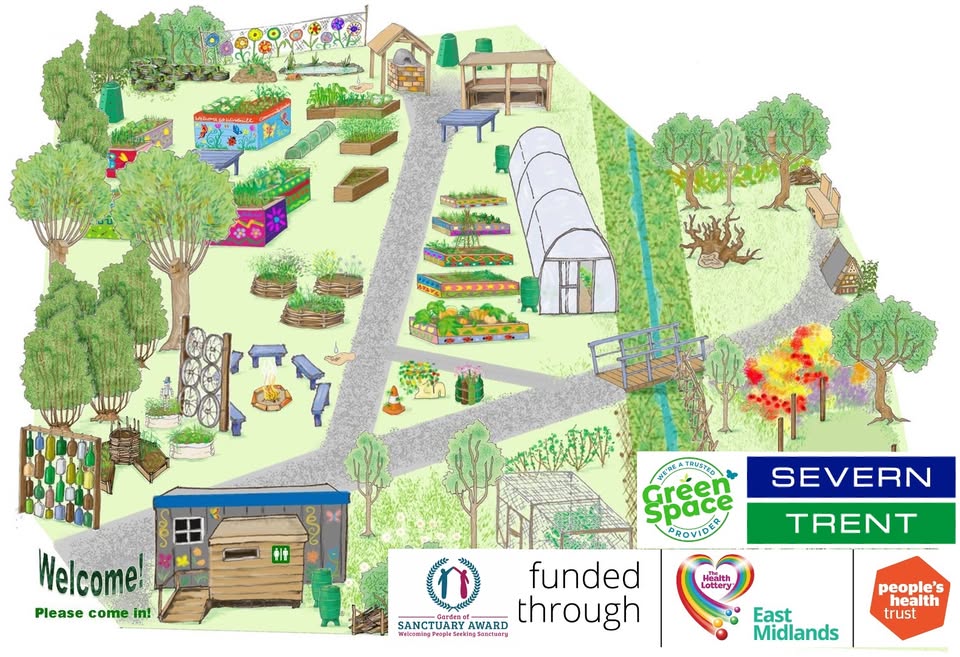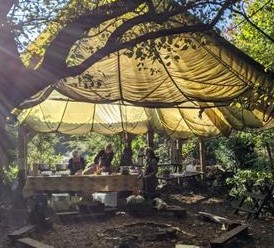Environment Page
Environmental news and issues from Nottingham, the East Midlands and beyond.
Whether it is climate change, biodiversity or pollution in your local area, you will have a real concern about the environment. If you don’t, then you must be burying your head in the sand, and it is time to stop doing that!
This page is here to help you to do just that.
We will be posting news here as soon we are made aware of them.
Also on this page, you can find links to organisations locally that might be of interest.
Events relating to the Environment are now posted on the Diary page.
So if you are looking for talks, a meeting or a chance to get involved with litter picking
click here.
Environmental News Groups and projects
Environmental News
Worldwide
In a Warming World, Why Is the Southern Ocean Getting Cooler?
Yale Environment 360
Environmental News Network

Climate models predict that as the planet warms, so will the Southern Ocean. But for decades, the waters around Antarctica have grown mysteriously cooler. A new study shows why.
Climate models predict that as the planet warms, so will the Southern Ocean. But for decades, the waters around Antarctica have grown mysteriously cooler. A new study shows why.
click here
top of the page
‘A pandemic-level shock to the system’:
RFK Jr’s old environmental group weighs EPA cuts
Guardian

Donald Trump’s push to repurpose the US Environmental Protection Agency (EPA) amid funding cuts and staffing losses poses a huge threat to water safety and environmental advances in one of the big environmental success stories in the US in recent decades: the clean-up of the Hudson River.
click here
top of the page
Record number of illegal sewage spills in Windermere last year
BBC

Sewage spilled illegally into England's largest lake on a record number of days last year, an analysis of water company data by campaigners suggests.
The analysis, which the BBC had exclusive access to, used United Utilities operational data to establish when the company was discharging sewage into Windermere when it should by law have been treating some of it.
The campaigners from Windrush Against Sewage Pollution (WASP) and Save Windermere identified 140 illegal spill days in 2024, more than in any of the three previous years.
click here
top of the page
Being hated worked for Just Stop Oil
The Conversation

The climate activist group Just Stop Oil (JSO) has announced the end of its campaign of direct action. Many will read the group’s legacy through the lens of public hostility: the frustration caused, the angry headlines, the outrage at its tactics. Not only have JSO activists been spat at, physically assaulted and run over by angry car drivers, but 15 members are also currently serving jail sentences following arrests and charges.
click here
top of the page
Do you know your woods from the trees?
take the big British woodlands spring quiz
Woodland Trust
The Guardian

With nature bursting into life, it’s the perfect time to get out and explore. Watch for blackthorn blossom and frogspawn, and listen for song thrushes – sure signs that spring is on the way
click here
top of the page
Greenpeace sued for $660 million.
Greenpeace

This is a dark day. Energy Transfer, an American oil company, has just won a controversial court case, suing Greenpeace in the US and Greenpeace International for $660 million.
This case will be appealed, but there’s a chance that Greenpeace in the US could be forced to close their doors, after more than fifty years of protecting people and planet.
click here
top of the page
The Greenland ice sheet is falling apart
The Conversation

Observing Greenland from a helicopter, the main problem is one of comprehending scale. I have thought we were skimming low over the waves of a fjord, before noticing the tiny shadow of a seabird far below and realising what I suspected were floating shards of ice were in fact icebergs the size of office blocks. I have thought we were hovering high in the sky over a featureless icy plane below, before bumping down gently onto ice only a few metres below us.
Crevasses – cracks in the surface of glaciers – are the epitome of this baffling range of scales. Formed by stresses at the surface, their direction and size tell us how the ice sheet is flowing towards the ocean. Inland, far away from the fast-flowing glaciers that discharge hundreds of gigatonnes of icebergs a year into fjords, crevasses can be tiny cracks only millimetres wide.
click here
top of the page
Free trees for schools and communities
Woodland Trust

We want to make sure everybody in the UK has the chance to plant a tree. So we’re giving away hundreds of thousands of trees to schools and communities. Together, we'll get millions more trees in the ground.
click here
top of the page
North Sea tanker collision
what we know so far
BBC

One person is missing and more than 30 people have been rescued after an oil tanker and cargo vessel collided in the North Sea off the coast of East Yorkshire.
Both ships remained on fire late on Monday evening, and the possible environmental impact is still being assessed. Here is what we know so far.
click here
top of the page
Bats Play a Key Role in Combating Rice Pests in Southeast Asia
Leibniz Institute for Zoo and Wildlife Research (IZW)
Environmental Network News

Scientists from the Leibniz Institute for Zoo and Wildlife Research (Leibniz-IZW) and the Prince of Songkla University in Thailand have demonstrated that Wrinkle-lipped free-tailed bats not only travels great distances, but also hunt at impressive altitudes of up to 1,600 metres above ground – the altitude at which many planthoppers fly, which are dreaded insect pests of rice plants.
click here
top of the page
Record January warmth puzzles climate scientists
BBC

January 2025 had been expected to be slightly cooler than January 2024 because of a shift away from a natural weather pattern in the Pacific known as El Niño.
But instead, last month broke the January 2024 record by nearly 0.1C, according to the European Copernicus climate service.
The world's warming is due to emissions of planet-heating gases from human activities - mainly the burning of fossil fuels - but scientists say they cannot fully explain why last month was particularly hot.
click here
top of the page
There isn’t enough ‘sustainable’ aviation fuel to make a dent in our emissions
and there won’t be for years

The UK chancellor, Rachel Reeves, has described so-called sustainable aviation fuel (SAF) as a “game changer”. As she announced government support for a series of airport expansions, she said that the fuel “can reduce carbon emissions from flying by 70%”.
This number is misleading. Optimistic estimates do suggest that fully replacing fossil jet fuel with its sustainable alternative could lead to total savings of around 70%. But it will be hard to produce enough SAF to make a difference on that sort of scale. Even if the UK meets its ambitious targets, an annual saving of 7% by 2030 is more plausible.
click here
top of the page
Outcry as Trump withdraws support for research that mentions ‘climate’
The Guardian

The US government is withdrawing grants and other support for research that even references the climate crisis, academics have said, amid Donald Trump’s blitzkrieg upon environmental regulations and clean-energy development.
click here
top of the page
Native Bee Populations Can Bounce Back After Honey Bees Move Out
Environmental Network News

Managed honey bees have the potential to affect native bee populations when they are introduced to a new area, but a study led by researchers at Penn State suggests that, under certain conditions, the native bees can bounce back if the apiaries are moved away.
click here
top of the page
Concern UK's AI ambitions could lead to water shortages
BBC

Sir Keir Starmer's plan to make the UK a "world leader" in Artificial Intelligence (AI) could put already stretched supplies of drinking water under strain, industry sources have told the BBC.
click here
top of the page
Environmental Projects
In Nottingham and beyond
AMC Gardens - Arkwright Meadows Community Gardens

Established in 2001 Arkwright Meadows Community Garden is a thriving community project. The Gardens are a green oasis within walking distance of Nottingham City Centre. We are open to visitors throughout the week providing a place for relaxation and recreation.
Nottingham
website
top of the page
The Conversation - environment

The Conversation is a network of nonprofit media outlets publishing news stories and research reports online, with accompanying expert opinion [unbiased definition needed] and analysis. Articles are written by academics and researchers under a Creative Commons license, allowing reuse without modification.
Global
website
top of the page
Friends of Colwick Woods Local Nature Reserve

A not for profit, community driven nature conservation group working in partnership with Nottingham City Council to maintain, protect and enhance Colwick Woods Nature Reserve.
nottingham
facebook
top of the page
Friends of Valley Road Park and Water Meadow

Welcome to the friends of valley road park group, a local conservation group for valley road park and water meadow.
nottingham
facebook
top of the page
Friends Of Wollaton Local Nature Reserve

What goes on behind the scenes at Martins Pond, Harrison Plantation, Raleigh Pond - and how to get involved.
nottingham
facebook
top of the page
Friends of Woodthorpe Grange Park

Volunteering, heritage and conservation. Partnering with NCC's Parks and Open Spaces.
nottingham
facebook
top of the page
Greenpeace Nottingham

We raise awareness in and around Nottingham of the pressing issues that threaten this unique planet and ask people to support our campaigns.
Nottinghamshire
facebook
top of the page
Green's Windmill and Science Centre

Organic flour millers. Home of George Green, Nottingham’s mathematical miller. Free entry, open Wednesday to Sunday 10am-4pm.
Nottingham
facebook
top of the page
Memorial Gardens Association

We are an independent association whose aims are to help protect, enhance and promote Nottingham Memorial Gardens.
Nottingham
facebook
top of the page
Naturebang

Becky Ripley and Emily Knight make sense of what it means to be human by looking to the natural world... Science meets storytelling with a philosophical twist.
BBC
website
top of the page
Nottingham Green Guardians

The Nottingham Green Guardians are the volunteers covering Nottingham City Council's Parks and Open Spaces.
Our fabulous volunteers give up their time to help Nottingham become Happier, Healthier and Greener!
Nottingham
facebook
top of the page
Nottingham Friends of the Earth

Local action groups are part of a large network supported with plenty of expertise, training, resources and lobbying power. They're made up of people like you, and together they’ll bring about big systemic change.
Nottingham
website
top of the page
Nottingham Open Spaces Forum

Our aim is to promote, protect, conserve and enhance the open spaces within Nottingham City
Nottinghamshire
facebook
top of the page
Nottinghamshire Treeplanters

Nottinghamshire Treeplanters are partnering up with The Field, Strelley to plant more trees on their Community Field.
Nottingham
facebook
top of the page
Nottinghamshire Wildlife Trust

Nottinghamshire Wildlife Trust is the county's leading conservation charity run by local people for the benefit of local wildlife, with nature reserves across the county - part of a UK network of 46 local Wildlife Trusts working to protect wildlife.
Nottinghamshire
website
top of the page
Pedals: Nottingham Cycle Campaign

We are the voice of people who cycle, and speak up for everyone who would love to cycle more - if only it felt safer and easier. Join us!
Nottingham
facebook
top of the page
Science & Environment

Latest Science News from around the world.
BBC
website
top of the page
St Ann's Allotments

STAA is a charitable organisation based on the historic St Anns Allotments site in Nottingham. We manage a wide range of community projects including the St Anns Community Orchard & the Heritage and History Allotment Garden. Our events include guided heritage tours of the allotments, volunteering opportunities and community open days.
Nottingham
website
top of the page
top of the page
top of the page
Environment
website
Guardian
website
top of the page
Environmental News Network
website
website
top of the page
Windmill Community Gardens

We are a group of local people nurturing a wonderful community garden in the heart of the city.
facebook
Nottingham
facebook
top of the page


 Climate models predict that as the planet warms, so will the Southern Ocean. But for decades, the waters around Antarctica have grown mysteriously cooler. A new study shows why.
Climate models predict that as the planet warms, so will the Southern Ocean. But for decades, the waters around Antarctica have grown mysteriously cooler. A new study shows why.
click here
Climate models predict that as the planet warms, so will the Southern Ocean. But for decades, the waters around Antarctica have grown mysteriously cooler. A new study shows why.
Climate models predict that as the planet warms, so will the Southern Ocean. But for decades, the waters around Antarctica have grown mysteriously cooler. A new study shows why.
click here
 Donald Trump’s push to repurpose the US Environmental Protection Agency (EPA) amid funding cuts and staffing losses poses a huge threat to water safety and environmental advances in one of the big environmental success stories in the US in recent decades: the clean-up of the Hudson River.
click here
Donald Trump’s push to repurpose the US Environmental Protection Agency (EPA) amid funding cuts and staffing losses poses a huge threat to water safety and environmental advances in one of the big environmental success stories in the US in recent decades: the clean-up of the Hudson River.
click here
 Sewage spilled illegally into England's largest lake on a record number of days last year, an analysis of water company data by campaigners suggests.
The analysis, which the BBC had exclusive access to, used United Utilities operational data to establish when the company was discharging sewage into Windermere when it should by law have been treating some of it.
The campaigners from Windrush Against Sewage Pollution (WASP) and Save Windermere identified 140 illegal spill days in 2024, more than in any of the three previous years.
click here
Sewage spilled illegally into England's largest lake on a record number of days last year, an analysis of water company data by campaigners suggests.
The analysis, which the BBC had exclusive access to, used United Utilities operational data to establish when the company was discharging sewage into Windermere when it should by law have been treating some of it.
The campaigners from Windrush Against Sewage Pollution (WASP) and Save Windermere identified 140 illegal spill days in 2024, more than in any of the three previous years.
click here
 The climate activist group Just Stop Oil (JSO) has announced the end of its campaign of direct action. Many will read the group’s legacy through the lens of public hostility: the frustration caused, the angry headlines, the outrage at its tactics. Not only have JSO activists been spat at, physically assaulted and run over by angry car drivers, but 15 members are also currently serving jail sentences following arrests and charges.
click here
The climate activist group Just Stop Oil (JSO) has announced the end of its campaign of direct action. Many will read the group’s legacy through the lens of public hostility: the frustration caused, the angry headlines, the outrage at its tactics. Not only have JSO activists been spat at, physically assaulted and run over by angry car drivers, but 15 members are also currently serving jail sentences following arrests and charges.
click here
 With nature bursting into life, it’s the perfect time to get out and explore. Watch for blackthorn blossom and frogspawn, and listen for song thrushes – sure signs that spring is on the way
click here
With nature bursting into life, it’s the perfect time to get out and explore. Watch for blackthorn blossom and frogspawn, and listen for song thrushes – sure signs that spring is on the way
click here
 This is a dark day. Energy Transfer, an American oil company, has just won a controversial court case, suing Greenpeace in the US and Greenpeace International for $660 million.
This case will be appealed, but there’s a chance that Greenpeace in the US could be forced to close their doors, after more than fifty years of protecting people and planet.
click here
This is a dark day. Energy Transfer, an American oil company, has just won a controversial court case, suing Greenpeace in the US and Greenpeace International for $660 million.
This case will be appealed, but there’s a chance that Greenpeace in the US could be forced to close their doors, after more than fifty years of protecting people and planet.
click here
 Observing Greenland from a helicopter, the main problem is one of comprehending scale. I have thought we were skimming low over the waves of a fjord, before noticing the tiny shadow of a seabird far below and realising what I suspected were floating shards of ice were in fact icebergs the size of office blocks. I have thought we were hovering high in the sky over a featureless icy plane below, before bumping down gently onto ice only a few metres below us.
Crevasses – cracks in the surface of glaciers – are the epitome of this baffling range of scales. Formed by stresses at the surface, their direction and size tell us how the ice sheet is flowing towards the ocean. Inland, far away from the fast-flowing glaciers that discharge hundreds of gigatonnes of icebergs a year into fjords, crevasses can be tiny cracks only millimetres wide.
click here
Observing Greenland from a helicopter, the main problem is one of comprehending scale. I have thought we were skimming low over the waves of a fjord, before noticing the tiny shadow of a seabird far below and realising what I suspected were floating shards of ice were in fact icebergs the size of office blocks. I have thought we were hovering high in the sky over a featureless icy plane below, before bumping down gently onto ice only a few metres below us.
Crevasses – cracks in the surface of glaciers – are the epitome of this baffling range of scales. Formed by stresses at the surface, their direction and size tell us how the ice sheet is flowing towards the ocean. Inland, far away from the fast-flowing glaciers that discharge hundreds of gigatonnes of icebergs a year into fjords, crevasses can be tiny cracks only millimetres wide.
click here
 We want to make sure everybody in the UK has the chance to plant a tree. So we’re giving away hundreds of thousands of trees to schools and communities. Together, we'll get millions more trees in the ground.
click here
We want to make sure everybody in the UK has the chance to plant a tree. So we’re giving away hundreds of thousands of trees to schools and communities. Together, we'll get millions more trees in the ground.
click here
 One person is missing and more than 30 people have been rescued after an oil tanker and cargo vessel collided in the North Sea off the coast of East Yorkshire.
Both ships remained on fire late on Monday evening, and the possible environmental impact is still being assessed. Here is what we know so far.
click here
One person is missing and more than 30 people have been rescued after an oil tanker and cargo vessel collided in the North Sea off the coast of East Yorkshire.
Both ships remained on fire late on Monday evening, and the possible environmental impact is still being assessed. Here is what we know so far.
click here
 Scientists from the Leibniz Institute for Zoo and Wildlife Research (Leibniz-IZW) and the Prince of Songkla University in Thailand have demonstrated that Wrinkle-lipped free-tailed bats not only travels great distances, but also hunt at impressive altitudes of up to 1,600 metres above ground – the altitude at which many planthoppers fly, which are dreaded insect pests of rice plants.
click here
Scientists from the Leibniz Institute for Zoo and Wildlife Research (Leibniz-IZW) and the Prince of Songkla University in Thailand have demonstrated that Wrinkle-lipped free-tailed bats not only travels great distances, but also hunt at impressive altitudes of up to 1,600 metres above ground – the altitude at which many planthoppers fly, which are dreaded insect pests of rice plants.
click here
 January 2025 had been expected to be slightly cooler than January 2024 because of a shift away from a natural weather pattern in the Pacific known as El Niño.
But instead, last month broke the January 2024 record by nearly 0.1C, according to the European Copernicus climate service.
The world's warming is due to emissions of planet-heating gases from human activities - mainly the burning of fossil fuels - but scientists say they cannot fully explain why last month was particularly hot.
click here
January 2025 had been expected to be slightly cooler than January 2024 because of a shift away from a natural weather pattern in the Pacific known as El Niño.
But instead, last month broke the January 2024 record by nearly 0.1C, according to the European Copernicus climate service.
The world's warming is due to emissions of planet-heating gases from human activities - mainly the burning of fossil fuels - but scientists say they cannot fully explain why last month was particularly hot.
click here
 The UK chancellor, Rachel Reeves, has described so-called sustainable aviation fuel (SAF) as a “game changer”. As she announced government support for a series of airport expansions, she said that the fuel “can reduce carbon emissions from flying by 70%”.
This number is misleading. Optimistic estimates do suggest that fully replacing fossil jet fuel with its sustainable alternative could lead to total savings of around 70%. But it will be hard to produce enough SAF to make a difference on that sort of scale. Even if the UK meets its ambitious targets, an annual saving of 7% by 2030 is more plausible.
click here
The UK chancellor, Rachel Reeves, has described so-called sustainable aviation fuel (SAF) as a “game changer”. As she announced government support for a series of airport expansions, she said that the fuel “can reduce carbon emissions from flying by 70%”.
This number is misleading. Optimistic estimates do suggest that fully replacing fossil jet fuel with its sustainable alternative could lead to total savings of around 70%. But it will be hard to produce enough SAF to make a difference on that sort of scale. Even if the UK meets its ambitious targets, an annual saving of 7% by 2030 is more plausible.
click here
 The US government is withdrawing grants and other support for research that even references the climate crisis, academics have said, amid Donald Trump’s blitzkrieg upon environmental regulations and clean-energy development.
click here
The US government is withdrawing grants and other support for research that even references the climate crisis, academics have said, amid Donald Trump’s blitzkrieg upon environmental regulations and clean-energy development.
click here
 Managed honey bees have the potential to affect native bee populations when they are introduced to a new area, but a study led by researchers at Penn State suggests that, under certain conditions, the native bees can bounce back if the apiaries are moved away.
click here
Managed honey bees have the potential to affect native bee populations when they are introduced to a new area, but a study led by researchers at Penn State suggests that, under certain conditions, the native bees can bounce back if the apiaries are moved away.
click here
 Sir Keir Starmer's plan to make the UK a "world leader" in Artificial Intelligence (AI) could put already stretched supplies of drinking water under strain, industry sources have told the BBC.
click here
Sir Keir Starmer's plan to make the UK a "world leader" in Artificial Intelligence (AI) could put already stretched supplies of drinking water under strain, industry sources have told the BBC.
click here
 Established in 2001 Arkwright Meadows Community Garden is a thriving community project. The Gardens are a green oasis within walking distance of Nottingham City Centre. We are open to visitors throughout the week providing a place for relaxation and recreation.
Nottingham
Established in 2001 Arkwright Meadows Community Garden is a thriving community project. The Gardens are a green oasis within walking distance of Nottingham City Centre. We are open to visitors throughout the week providing a place for relaxation and recreation.
Nottingham
 The Conversation is a network of nonprofit media outlets publishing news stories and research reports online, with accompanying expert opinion [unbiased definition needed] and analysis. Articles are written by academics and researchers under a Creative Commons license, allowing reuse without modification.
The Conversation is a network of nonprofit media outlets publishing news stories and research reports online, with accompanying expert opinion [unbiased definition needed] and analysis. Articles are written by academics and researchers under a Creative Commons license, allowing reuse without modification.
 A not for profit, community driven nature conservation group working in partnership with Nottingham City Council to maintain, protect and enhance Colwick Woods Nature Reserve.
A not for profit, community driven nature conservation group working in partnership with Nottingham City Council to maintain, protect and enhance Colwick Woods Nature Reserve.
 Welcome to the friends of valley road park group, a local conservation group for valley road park and water meadow.
Welcome to the friends of valley road park group, a local conservation group for valley road park and water meadow.
 What goes on behind the scenes at Martins Pond, Harrison Plantation, Raleigh Pond - and how to get involved.
What goes on behind the scenes at Martins Pond, Harrison Plantation, Raleigh Pond - and how to get involved.
 Volunteering, heritage and conservation. Partnering with NCC's Parks and Open Spaces.
Volunteering, heritage and conservation. Partnering with NCC's Parks and Open Spaces.
 We raise awareness in and around Nottingham of the pressing issues that threaten this unique planet and ask people to support our campaigns.
We raise awareness in and around Nottingham of the pressing issues that threaten this unique planet and ask people to support our campaigns.
 Organic flour millers. Home of George Green, Nottingham’s mathematical miller. Free entry, open Wednesday to Sunday 10am-4pm.
Organic flour millers. Home of George Green, Nottingham’s mathematical miller. Free entry, open Wednesday to Sunday 10am-4pm.
 We are an independent association whose aims are to help protect, enhance and promote Nottingham Memorial Gardens.
We are an independent association whose aims are to help protect, enhance and promote Nottingham Memorial Gardens.
 Becky Ripley and Emily Knight make sense of what it means to be human by looking to the natural world... Science meets storytelling with a philosophical twist.
Becky Ripley and Emily Knight make sense of what it means to be human by looking to the natural world... Science meets storytelling with a philosophical twist.
 The Nottingham Green Guardians are the volunteers covering Nottingham City Council's Parks and Open Spaces.
Our fabulous volunteers give up their time to help Nottingham become Happier, Healthier and Greener!
The Nottingham Green Guardians are the volunteers covering Nottingham City Council's Parks and Open Spaces.
Our fabulous volunteers give up their time to help Nottingham become Happier, Healthier and Greener!
 Local action groups are part of a large network supported with plenty of expertise, training, resources and lobbying power. They're made up of people like you, and together they’ll bring about big systemic change.
Local action groups are part of a large network supported with plenty of expertise, training, resources and lobbying power. They're made up of people like you, and together they’ll bring about big systemic change.
 Our aim is to promote, protect, conserve and enhance the open spaces within Nottingham City
Our aim is to promote, protect, conserve and enhance the open spaces within Nottingham City
 Nottinghamshire Treeplanters are partnering up with The Field, Strelley to plant more trees on their Community Field.
Nottinghamshire Treeplanters are partnering up with The Field, Strelley to plant more trees on their Community Field.
 Nottinghamshire Wildlife Trust is the county's leading conservation charity run by local people for the benefit of local wildlife, with nature reserves across the county - part of a UK network of 46 local Wildlife Trusts working to protect wildlife.
Nottinghamshire Wildlife Trust is the county's leading conservation charity run by local people for the benefit of local wildlife, with nature reserves across the county - part of a UK network of 46 local Wildlife Trusts working to protect wildlife.
 We are the voice of people who cycle, and speak up for everyone who would love to cycle more - if only it felt safer and easier. Join us!
We are the voice of people who cycle, and speak up for everyone who would love to cycle more - if only it felt safer and easier. Join us!
 STAA is a charitable organisation based on the historic St Anns Allotments site in Nottingham. We manage a wide range of community projects including the St Anns Community Orchard & the Heritage and History Allotment Garden. Our events include guided heritage tours of the allotments, volunteering opportunities and community open days.
STAA is a charitable organisation based on the historic St Anns Allotments site in Nottingham. We manage a wide range of community projects including the St Anns Community Orchard & the Heritage and History Allotment Garden. Our events include guided heritage tours of the allotments, volunteering opportunities and community open days.
 St Anns Community Orchard is a safe, beautiful, natural and productive space where local people can play, learn and meet each other outdoors.
St Anns Community Orchard is a safe, beautiful, natural and productive space where local people can play, learn and meet each other outdoors.
 Community Gardens in Sherwood, Nottingham for growing food locally and sustainably
Community Gardens in Sherwood, Nottingham for growing food locally and sustainably
 We are a group of local people nurturing a wonderful community garden in the heart of the city.
We are a group of local people nurturing a wonderful community garden in the heart of the city.